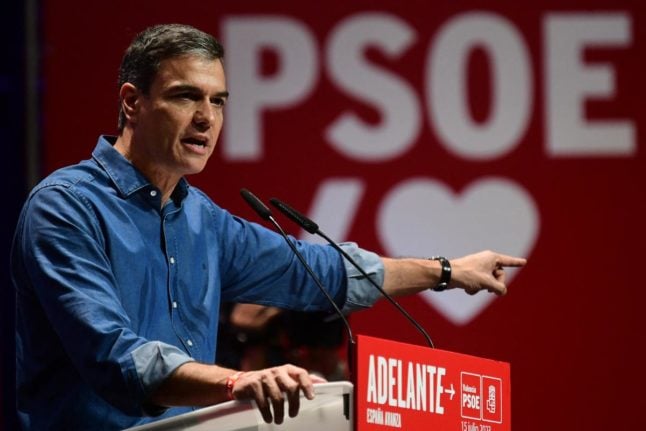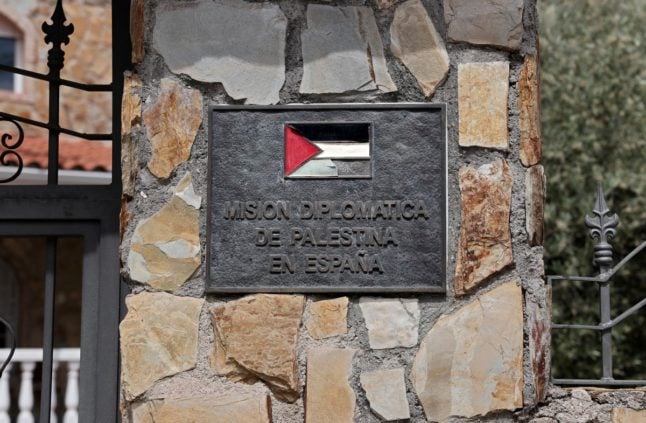Sanchez’s Socialists have since January 2020 governed in a minority coalition government with Podemos, born out of grassroots anti-austerity “indignados” protests.
Sanchez once said the thought of such a tie-up prevented him from sleeping, but he was forced to agree to it after two inconclusive general elections.
It is Spain’s first coalition government since the country returned to democracy in the 1970s and it has been marked by high-profile feuds between the two parties over contested policies that have alienated more moderate Socialists.
“There has been a transfer of votes from the left to the right,” said Maria Martin of private pollster GAD3.
About ten percent of former Socialist voters who said they voted for Sanchez during the last general election in November 2019 now say they will vote for the main opposition conservative Popular Party (PP), she added.
That is roughly 700,000 voters who Sanchez could lose in the upcoming election which surveys tip the PP will win.
The issue that has contributed the most to this transfer of votes is a loophole in a new sexual violence law adopted last year that saw over 1,000 imprisoned offenders have their sentences reduced, Martin said.
Roughly 100 offenders were eventually released, prompting Sanchez to apologise and his government to amend the law which had been put forward by Podemos.
Dubbed the “only yes means yes law”, it has become an effective weapon with which to bludgeon Sanchez.
‘Monsters on the streets’
“It is a problem which will follow you forever,” PP leader Alberto Nunez Feijoo said during a TV debate on Monday with Sanchez.
Far-right party Vox has put up a giant billboard in central Madrid depicting a bearded man wearing a black hoodie that covers his eyes, with his hand covering the mouth of a young woman to stifle her scream.
“Sanchez has put hundreds of these monsters on the streets,” reads a message in block letters above the image.
There is also a “confrontation at the centre of the left between the more classical feminism represented by the Socialist party and that defended by Podemos,” said Jose Pablo Ferrandiz of polling firm Ipsos.
At the centre of the row is a law adopted in February and proposed by Podemos which allows anyone 16 and over to change their gender on their ID card on the basis of a simple statement.
The Socialists blocked the draft law for months while they tried in vain to amend it.
Part of the feminist camp – including former Socialist deputy prime minister Carmen Calvo – openly criticised the law on the grounds that it jeopardised the decades-long fight for equality between the sexes.
This view was shared by a part of the electorate, which was uncomfortable with the “very ideological position” defended by Podemos regarding social issues, said Martin.
‘Mistakes’
Podemos has also railed against meat consumption for the good of the planet, which has hurt support for the Socialist in rural areas, she added.
Sanchez tried to distance himself from the far-left party’s position, saying for him “a medium-rare steak is hard to beat”.
The premier is aware of the disaffection of moderate voters and is trying to “mobilise this segment of the Socialist electorate which is close to the centre and is very sizeable,” said Ferrandiz.
In TV and radio interviews, Sanchez has recognised his government has made “mistakes”.
“According to several polls, men, but also women, feel uncomfortable vis-a-vis certain feminist discourses,” Sanchez said during one interview, adding he had friends who felt this way.
Analysts warned criticising his government’s measures was not a winning strategy.
“A prime minister who has governed for years and who questions (the action of the executive) in the middle of an electoral campaign sends a confused message to his electorate,” said Martin.



 Please whitelist us to continue reading.
Please whitelist us to continue reading.
Member comments